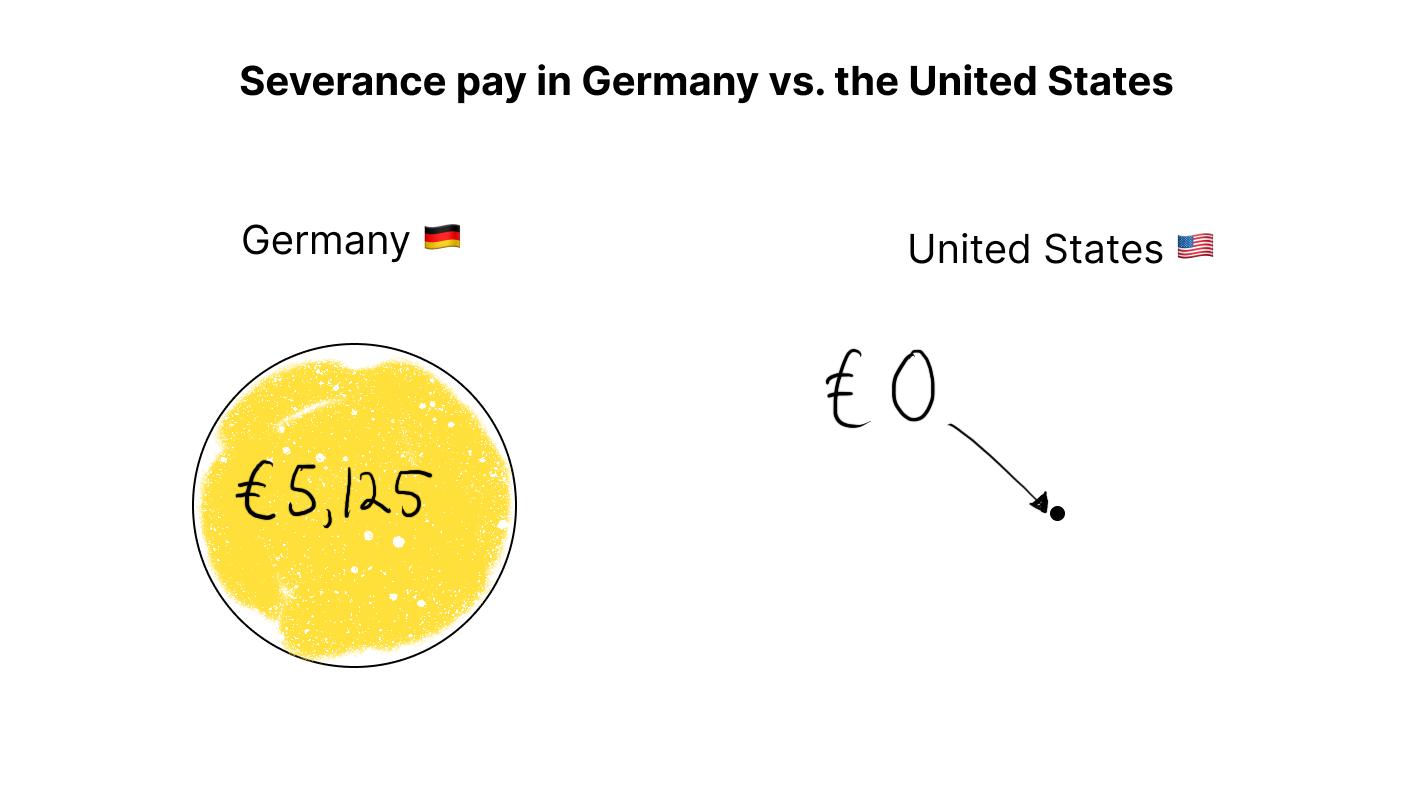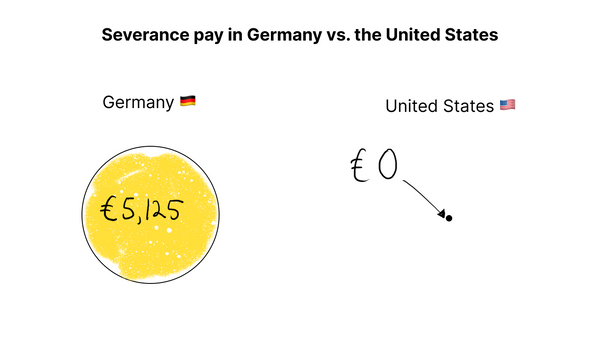
8 Signs Your Boss Wants You to Leave
When it comes to the subtleties of the workplace, actions speak louder than words. This means your boss probably won't tell you flat out that they want you to quit. It's typically subtler and more nuanced than that. The repeated use of tactics that are intended to make you feel uneasy or undervalued at work is a strong indication that your boss wants you to leave. Early recognition of these signals is essential to make the most informed decisions about your professional future.
It's the subtle (virtual) cold shoulder, the silent treatment when you achieve something or an unexplained exclusion from important meetings. Maybe it's the sudden overbearing supervision that wasn't there before or an unexpected decrease in responsibilities. Perhaps it's being isolated from colleagues, making you feel like an outsider in a place where you once belonged. These signs, when persistent, often imply a message without words— “It's time to pack up.”
This article navigates these unspoken signs, helping you understand what they mean and how to react to them. Armed with this knowledge, you can reclaim your agency, and decide the right course of action, whether that involves starting a search for a new job or even sitting down for a chat with your boss.
In 2023, though, you might not have the chance to even speak with your boss. This is especially true with remote working, where many workers reported not meeting their employers face-to-face, making the whole ghosting situation far easier. So, in 2023, it is essential to consider the possibility that you’ll never get a genuine discussion, and know when to fight for your place or when it's simply time to leave and find an environment where your skills are appreciated. So, browse through our article as we explore the murky waters of office politics and shed light on the warning signals that your boss may be plotting your exit.
Should I leave my job if my boss wants me to resign?
Should I stay or should I go? That question has been around at least since the eighties. In some countries, being fired, laid off, or resigning it’s just about the same: you’ll have no pay cheque from that day onward; the only thing that might change is your LinkedIn post talking either about “mixed feelings,” “heavy hearts” or “empty wallets — I’m #opentowork, you know.” But that’s not always the case. For example, in the European Union, even if your boss wants you to leave, you might consider clinging to your job and waiting for a severance package, that you won’t get if you resign. You can always negotiate your way out, that’s for sure, but, considering you don’t have any leverage because your boss wants to send you straight to skid row, you might think about this situation with figures in mind. In Germany, the standard severance payment is not half the annual income but half a month's wage for each year of employment with the company. Additionally, there is a maximum cap of 12 months' pay for the severance payment. So, if a software engineer with a salary of €61,500 were fired after two years, they would receive 50% of one month’s wages for every year of service: €5,125 in severance pay, before taxes. Please remember that this is just an example since Germany has no statutory severance pay. Still, a standard formula for severance pay is 50% of one month’s wages for every year of service, up to a maximum of 12 months’ salary. When making up your mind, One aspect to consider carefully is the timing of your resignation letter, so don’t forget to prepare your ink and pen if you’re the one slamming the door shut.

You can always compare this to the United States, where you will likely rack up exactly €0. In that case, you’ll have fewer motives to hold on to your “dream” job if your boss evidently wants you out.
Signs an employer wants you to quit
Let's suppose the employer or boss is very adamant about you quitting instead of terminating your employment, since they want to spend your severance cash on a holiday on the startling island of Java, in Indonesia. As we mentioned before, one of their preferred mechanisms will be to make you feel dreadful. You should look out for these signs to understand if the employer wants you to quit.
1. The Cold Shoulder: Your boss avoids you
One of the most obvious signs that your boss might want you to leave is if they start avoiding you. This could mean they're not responding to your emails or cancelling your weekly meetings out of nowhere. If your boss is suddenly acting distant, it's worth paying attention.
There are a few reasons why your boss might be avoiding you. Maybe they're unhappy with your work performance or planning to let you go. Whatever the reason, their avoidance is a sign that something is wrong. A boss who wants you to leave will belittle your ideas no matter what, so don’t take it personally.
The cold shoulder took some guts when you had to meet by the water cooler at the office, but it’s effortless for your employers in a remote work environment: They can start ghosting you until you give up. In 2023, obnoxious bosses no longer have to commute to ignore their colleagues or employees.
2. Not Giving Credit: Lack of recognition for your accomplishments
Another sign that your boss might want you to leave is if they do not recognise your achievements. If you've been working hard and hitting your goals, but your boss isn't giving you any credit, it's a red flag. Business-wise, it’s also a frivolous move: since clear communication has been proven to increase productivity, a boss not giving credit where it's due might hinder a company’s performance.
A lack of recognition can be a way of showing that your boss doesn't value your work. It can also be a way of trying to get you to leave. So, remember: If your boss constantly overlooks your accomplishments, or if they even claim them for themselves, something eerie might be brewing at the workplace.
3. Exclusion from key meetings and discussions
Being left out of important meetings and discussions is another sign that your boss might want you to leave. If you're suddenly being excluded from meetings that you used to be involved in, it's a sign that your boss is planning without you.
Being excluded from meetings and discussions can isolate you from the rest of the team. It can also be a way of making you feel like you're not relevant. If you're being excluded from key meetings, it's time to talk to your boss about why. Or maybe it’s time to start looking for a new job.
4. Micromanagement: Overbearing supervision and scant flexibility
Micromanagement is another sign that your boss might want you to leave. If your boss suddenly starts micromanaging your work, it's a sign that they don't trust you.
Imagine that you're a software engineer working on a project. Your boss is a micromanager who insists on being informed about every detail of the project's progress. They frequently ask for updates, even on minor components that don't necessarily require their attention. They also scrutinise your code, constantly giving critical feedback and pointing out every little mistake, leaving you feeling like you can't do anything right. Moreover, they might sneak in an uncalled-for Teams or Slack message in the wee hours of the morning.

Your boss may also interfere with your work by insisting on making decisions that should be made by the engineering team, such as the tools and frameworks to be used. They might also constantly change their mind about the direction of the project, leading to confusion and wasted time. Moreover, a typical red flag shows up when an employer fully suppresses flexibility. So if you need to leave work early for a doctor’s appointment and your boss is making you pay, figuratively, but still will connect with you outside working hours, you should suspect their new-found rigidity.
In short, micromanagement can be detrimental to the employee's morale and the project's success, as it causes undue stress and prevents the employee from performing their best. And, remember: If someone wants you out, they’ll try their best to make you feel stressed, to say the least.
5. Stagnation: Decrease in responsibilities and growth opportunities
A decrease in new responsibilities and growth opportunities is another sign that your boss might want you to leave. If you're not being given new challenges or opportunities to grow, or if you’re assigned the most dire projects, it's a sign that your boss might be planning to let you go.
A decrease in responsibilities can also be a way of trying to make you feel bored and dissatisfied with your job. If you’re a JavaScript pro but are instead getting all the assignments on MATLAB, the most-dreaded programming language of 2022, it might not be a coincidence.
6. The Backhanded Compliment: Negative feedback disguised as praise
Another sign that your boss might want you to quit is when they give you negative feedback disguised as praise. This is a subtle way of undermining your confidence and making you doubt your abilities. For example, they might say, “You did an impressive job on that project, but I'm sure you can do even better next time” or “You have a lot of potential, but you need to work on your communication skills”. These backhanded compliments are not genuine and can make you feel like you're never good enough.
7. The Impossible Task: Unrealistic expectations and deadlines
If your boss suddenly assigns you tasks that are beyond your scope, expertise, or resources, it could be a sign that they want you to quit. They might set unrealistic expectations and deadlines, or change them frequently without notice. These impossible tasks are designed to make you fail or give up. Remember when we explored how companies might lure software engineers with bonuses that are impossible to attain? This is a similar strategy but meant to vanquish your motivation.
8. The Final Straw: The written warning
The last sign that your boss might want you to quit is when they give you a written warning. This is usually a formal document that outlines the issues with your performance or behaviour, and the consequences if they are not resolved. A written warning is often a precursor to termination, and can clearly indicate that your boss has given up on you and wants you to leave. So, if you’re a remote worker, watch out for that dusty fax machine.
Summary
If you've noticed any of the signs listed above, it's crucial to act. If you can ever do it, the first step is to talk to your boss about your concerns. Be assertive and direct, but be respectful.
If your boss is unwilling to discuss your concerns, if they don’t open up a slot for conversation, or if the signs persist, it's time to start looking for a new job. Don't let your boss push you out. You deserve to work in a place where you're valued and respected. You can always check new jobs on our Job Board and check company reviews to get a glimpse of their culture. Furthermore, you can always learn from experiences and leave a constructive negative review of that workplace. Good luck!
Link nội dung: https://career.edu.vn/if-a-boss-wants-to-have-a57287.html